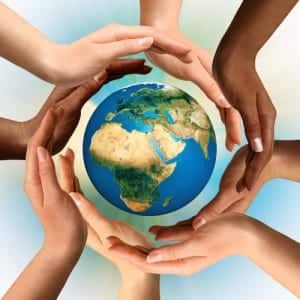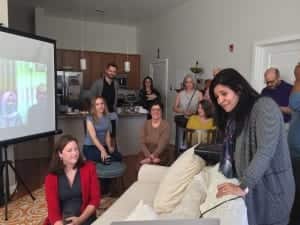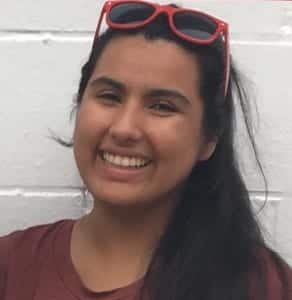Democratize Diplomacy!
This article was republished at Democracy Chronicles on January 17, 2020.
Our world is growing more interconnected yet also seems more and more insecure, divided, and dangerous. Improving incomes, transportation and communication have spurred international travel, trade and collaboration but also job flight, piracy, climate change and terrorism, among other problems. Despite the uncertainty these developments bring, one thing is certain: international affairs increasingly impact us all, from the air we breathe, to the prices we pay, to the jobs we get.
For all the impact the wider world has on our lives, it can seem distant from our everyday preoccupations and face-to-face interactions. Indeed, the less we know and connect with the wider world, the more irrelevant it can seem despite its increasing relevance to all our lives. This paradox of perceived irrelevance and mounting relevance calls for democratizing diplomacy.
Diplomacy can be simply defined as the management of international relations, but hard to do well, as any professional diplomat will readily note. Diplomacy is difficult because there are many factors and forces — political, economic, religious, geographic, historical, etc. — including competing individual and group ambitions, and all are pieces in an evolving play that can change its focus at any moment. This is often an argument for professionalizing rather than democratizing diplomacy. The world’s complexity, the argument goes, calls for well trained and experienced diplomats who can skillfully negotiate the dizzying and potentially explosive mix of interests, cultures and personalities toward peaceful and mutually beneficial ends. Amateur ignorance of that complex mix can at best offend, and at worst lead to war.
Professional diplomats are indeed essential for their skillful negotiation that can and has resolved crises, and fostered cooperation vital to international peace and prosperity. However, professional diplomats are, at the end of the day, usually paid agents of their governments. As such, they are first and foremost servants of government leaders, whether or not they like it, and whether or not those leaders’ interests align with those of their people, let alone the people of the world. Diplomats may and often do promote international peace and cooperation, but only if it coincides with their national leaders’ interests.
 None of this is meant to condemn diplomacy, nor its professional practitioners. Professional diplomacy is essential to international peace, justice and development, and countless diplomats have put their lives at risk in service of these world goods, usually with little if any public recognition. Nonetheless, I suspect that many if not most diplomats who work to advance these goods would agree that they could use some help not just from their governments (in the form of more staff, equipment, security, etc.), but also from their fellow citizens.
None of this is meant to condemn diplomacy, nor its professional practitioners. Professional diplomacy is essential to international peace, justice and development, and countless diplomats have put their lives at risk in service of these world goods, usually with little if any public recognition. Nonetheless, I suspect that many if not most diplomats who work to advance these goods would agree that they could use some help not just from their governments (in the form of more staff, equipment, security, etc.), but also from their fellow citizens.
At its simplest, democratizing diplomacy means enlarging the circle of participation in diplomacy. Whether professional diplomats like it or not, diplomacy experts explain that newer communication technologies (the internet, smart phones, social media, etc.) are already breaking the traditional near-monopoly of governments over diplomacy, giving ordinary people — individuals, networks and non-governmental organizations — more power in international relations (e.g., Grant 2005, Nye 2011).
As political scientist Joseph Nye notes, this widening of participation in international affairs can be for the better, or worse (Nye 2010). For better, any motivated individual or organization with a cell phone or laptop and access to the internet and social media can now, for instance, expose government violence and corruption, or collaborate with others across the world in mutually beneficial ways. For worse, any motivated person or group can photograph or video themselves burning a country’s flag or a religion’s sacred text, beating or killing a foreigner, or else. Unfortunately, it’s always easier to burn than build a bridge, and empowering more people to communicate makes it far easier for ideologues and lunatics to destroy the long, patient work of bridge-building.
Simply widening participation in international affairs is thus clearly not enough. Experts who advocate democratizing diplomacy though talk more about foreign policy authorities informing publics than about publics participating in diplomacy (e.g., Sachs 2016, Bessner & Wertheim 2017). Greater dialogue between foreign policy experts and publics would, of course, be a positive development. But those who attend such dialogues are likely to be more educated, if not themselves involved in foreign affairs, hence reinforcing the gulf between those engaged and disengaged with the world.
A broader public that better understands diplomacy, world geography, history, cultures, trends, problems, etc., better grasps the world’s relevance, and is more likely to call for and engage in diplomacy. That understanding can be developed in schools, but schools shouldn’t be the only vehicles because they vary so much in their quality and pedagogical priorities. Democratizing diplomacy can help, and citizen diplomacy is the vehicle.
In contrast with professional diplomacy, citizen diplomacy entails citizen-to-citizen communication and collaboration across borders. Professional diplomats frequently encourage citizen diplomacy if it advances their government’s foreign policy objectives. “Public diplomacy” officers commonly bring together ordinary people from different countries to promote mutual goodwill and cooperation. However, given that government leaders and their diplomatic agents are not always foremost committed to peace, justice and the welfare of their people, citizen diplomats need to maintain some independence from professional diplomats. Watchful citizens active in independent political parties, non-government organizations and voluntary associations are better able than state-backed groups to hold their governments accountable.
In this vein, independent citizen diplomacy groups can help lead the democratization of diplomacy as they collaborate to advance international peace, justice and development. Current examples of organizations doing citizen diplomacy include Global Ties U.S., Sister Cities International, World Learning, and iEARN. At their best, such groups don’t just foster dialogue or travel, but educational, economic and political collaborations. At their best, citizen diplomacy organizations also involve populations least likely to engage in diplomacy: the poor and those least connected to the wider world. Poverty and disconnection don’t necessarily engender xenophobia. But they breed ignorance, and ignorance is fuel for the xenophobia that attacks immigrants, neglects refugees, elects demagogues, and sows the seeds of war.
Thus, at its best, democratizing diplomacy means:
- Harnessing communication technologies to engage more people, especially the poor and those globally least connected, in diplomacy.
- Promoting not just dialogue and travel, but collaboration to advance transnational peace, justice and development.
- Cultivating and measuring progress in participants’ world knowledge, interests, skills and social ties via those cross-national collaborations.
- Encouraging the development of an independent citizen diplomacy sector composed of groups devoted foremost to international peace, justice and development rather than their country or government’s self-interest.
- Thinking and talking about how citizen diplomacy can ultimately entail routine and meaningful yet independent citizen participation in international government.
Democratizing diplomacy is a vital step in advancing human freedom, understood not as individual license but as collective self-government. The path to international government of, by and for the world’s peoples is clearly long. But the rise of the United Nations and other international governmental bodies, progress in transport and communication technologies, and growing cross-national trade and cooperation in the last one hundred years constitute important steps on that path. Governments that fear their people and seek to control power and perceptions present formidable obstacles. But governments that see their people as their greatest strength understand that democratizing diplomacy can help make their nation and the world more secure, just, and prosperous.
Paul Lachelier, Ph.D.
Founder, Learning Life
References
Bessner, Daniel, and Stephen Wertheim. April 5, 2017. “Democratizing U.S. Foreign Policy.” Foreign Affairs.
Grant, Richard. 2005. “The Democratisation of Diplomacy: Negotiating with the Internet.” Netherlands Institute of International Relations ‘Clingendael’ and Antwerp University.
Melissen, Jan. 2005. “The New Public Diplomacy: Between Theory and Practice” in The New Public Diplomacy, ed. Jan Melissen. New York: Palgrave Macmillan.
Nye, Joseph. October 4, 2010. “The Pros and Cons of Citizen Diplomacy.” New York Times.
Nye, Joseph. 2011. The Future of Soft Power. New York: Public Affairs.
Sachs, Jeffrey D. December 21, 2016. “The Democratization of U.S. Foreign Policy.” The Nation.



